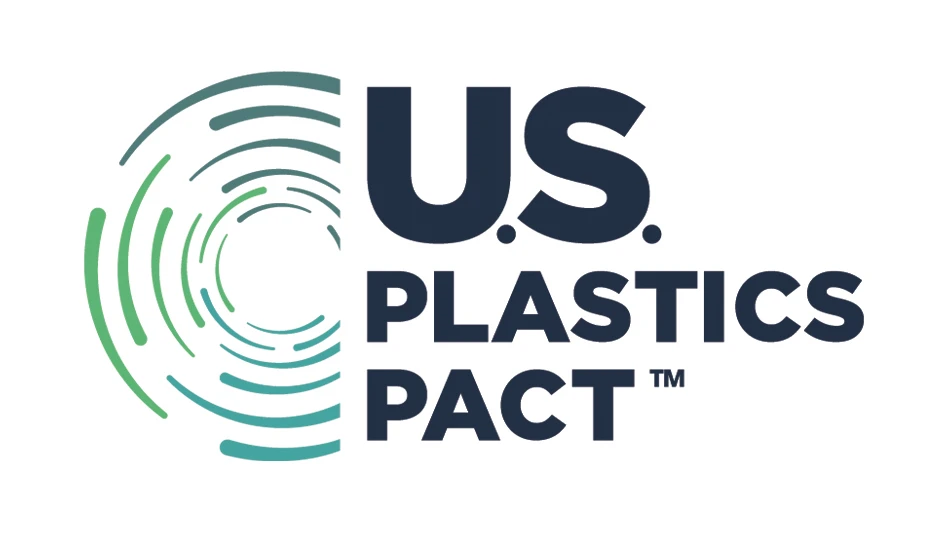 David Bender, CEO of Perpetual Recycling Solutions, at the company’s Richmond, Ind., plant. Photos: Susanna Tanner |
David Bender, CEO of Perpetual Recycling, says he sees great opportunities for his newly opened plastics recycling facility. The 100,000-sqare-foot plant, located in Richmond, Ind., has been in operation since January 2013 but is already generating positive news from suppliers and consumers.
What sets the company apart from many other plastics recycling operations is its ability to convert polyethylene terephthalate (PET) bottles and thermoforms from curbside programs into recycled flake suitable for food-grade packaging applications.
Packaging Background
While Bender does not have a steep a background in the recycling business, his experience in the packaging sector has given him a perspective more attuned to that of brand owners.
Prior to establishing Perpetual Recycling Solutions, Bender worked for HAVI Global Solutions, which manages businesses in the supply chain, packaging and marketing industries. From this perspective, Bender saw corporate brand owners’ growing interest in increasing their environmental stewardship initiatives, including the use of recycled content in their packaging products.
“At the end of 2007, while looking for my next opportunity, at a Christmas party a brand owner said I should get involved in this sector,” Bender says, refering to recycled-content packaging. “I knew it was big in Europe but not that big in the United States. I realized that there was a big demand, but no supply.
“The missing link,” Bender says, “was to go from the bale to food-grade content.”
With this inspiration, Bender, along with partners Jody Fusello and Carter Smith, started a company called Re:Think Recycling Group, which sought to recycle PET into flake suitable for food-grade packaging applications. The business partners’ first move was the purchase of Pure Tech Plastics, a New York-based plastics recycling company.
“We realized [Pure Tech] was a good category, but it wasn’t the asset to propel us to where we needed to be,” Bender says.
Going Greenfield
Believing brand owners were interested in growing their environmental stewardship efforts, Bender says the three founders looked at developing a greenfield site that could incorporate the right technology, the right people, the right economics and the right brand owners. This concept, he says, was the start of Perpetual Recycling Solutions in 2009.
The company sought a location that was located centrally amidst various brand owners and that was proximal to a sufficient source of supply to make the facility viable. “We did a logistics study to see where customers were and where the curbside supply was,” Bender says.
Ultimately, the company outlined a triangle that extended from southwestern Ohio to St. Louis in the west to the border of Wisconsin in the north. “From that diagram, we decided to locate our facility in Richmond, Ind.,” Bender says.
“Lots of states competed, but we found that Indiana was a great place, and Richmond had the right workforce,” Bender says.
While Perpetual Recycling Solutions’ management felt the concept of recycling postconsumer PET collected through curbside programs into flake suitable for food-grade packaging applications was a winner, the company had to maneuver the financial world to put together the necessary financing.
Perpetual Recycling Solutions tapped into private equity to obtain roughly $30 million, taking its facility from the drawing board to construction. An added challenge was that Perpetual was seeking financing during the midst of the recession, which practically froze much of the financial world in 2009.
In addition to raising money from the private sector, Perpetual Recycling Solutions worked with several Indiana government agencies, including the Indiana Economic Development Corp., which offered the company up to $550,000 in performance-based tax credits and $50,000 in training grants.
Additionally, the Wayne County (Indiana) Economic Development Corp. approved a $475,000 grant to help Perpetual Recycling with equipment, training and real estate improvements at its plant.
With the financing and facility design completed, the company broke ground on its facility in late 2011, with operations beginning in January 2013.
 Perpetual Recycling Solutions’ Richmond, Ind., processing plant. |
Up To Speed
After some modest adjustments, the facility is now operating seven days per week for nearly 24 hours per day. “We are at between 70-75 percent of production,” Bender days. “We are driving that number north every single month.”
More encouraging, Bender says, is that feedback from customers has been overwhelmingly positive. “We had someone in here, and he said that he has sampled more than 30 different customers’ PET flakes and he needed to see our manufacturing facility. He told us after visiting that we had the highest-quality flake in North America he has seen and the second-highest [quality] flake he has sampled throughout the world.”
The company’s goal is to open two lines at its Richmond plant. The first line, now operational, can produce 75 million pounds of food-contact-grade flake per year from roughly 107 million pounds of plastic scrap, including PET containers and thermoform packaging. The company uses a letter of nonobjection (LNO) from the U.S. Food and Drug Administration (FDA), which allows the company to sell its product for use in food-contact packaging.
However, Bender says the LNO provides no guarantee that a producer of recycled plastics will be able to sell their products into that market. “Some brand owners have taught us that it is possible to make an FDA [approved] product that isn’t good enough. It goes far beyond making food grade. It is the combination of the food-grade parameters, tied with sortation, purification, process, discipline and quality checks. Everything has to work in balance to make high-end product.”
One supplier that is encouraged by Perpetual’s startup is the recycling firm ReCommunity, Charlotte, N.C. The company, which operates multiple material recovery facilities (MRFs) throughout the country, has been supplying PET to Perpetual since its plant opened. Paul O’Donnell, vice president of ReCommunity’s commodities marketing, says his firm heard a lot about the facility prior to visiting it. And, after seeing the operation, he left impressed.
“It really looks great,” he says. “I am not an equipment expert, but it really looks like they have thought out the operation, including the location.
“I am really encouraged about the operation,” O’Donnell adds.
The plant’s success hinges on the equipment, Bender says. The facility was built using equipment supplied almost exclusively by Titech and Sorema Systems, rather than taking a piecemeal approach to equipment selection.
Curt Cozart, who represents Italy-based Sorema, says the turn-key approach has resulted in a fairly smooth project. “Two vendors really makes things work pretty smoothly,” he says.
For example, he says, multiple interfaces can bog down operations. However, with two control systems, a lot less debugging is required. “It is so much simpler. It is not a bunch of systems.”
Cozart estimates that Sorema has installed systems at more than 80 PET recycling plants worldwide.
Perpetual Recycling’s success is even more impressive considering that the company’s raw material is not a blend of high-quality and lower grades of PET. Rather, its sole supply is PET containers and thermoform packaging collected through curbside recycling programs.
“We take in Coke and Pepsi containers, plus water bottles. We also want salad bowls, cake tops, packaging from big-box retailers. Anything that is made from PET,” Bender says. “That is the future of our industry, and that will clearly differentiate us from others.”
Wilfred Poiesz, western region vice president for Stamford, Conn.-based Van Dyk Recycling Solutions, supplier of Perpetual’s Titech equipment, says, “Our equipment can handle all kinds of challenges in feedstock and can easily adapt to variations. Bale density, bale composition, infeed rates of flake, frozen bales, heat waves, chemicals—there are so many factors that affect the process.
“However, you would like to start up with the most average materials in order to slowly adjust to the variations while making a good finished product. Most challenges that were experienced were with unusually high concentrations of rejects of some kind in the incoming loads,” Poiesz says.
“Starting up a facility in a new geographic area comes with new suppliers, and this poses new challenges in feedstock management,” he adds. “It requires time to provide feedstock suppliers with feedback and data on what the facility can handle, while the operator of the facility needs data to review the financial feasibility or opportunity to process those loads. It all takes time,” Poeisz says.
Step-By-Step Process
Perpetual Recycling Solutions purchases 1,000-pound bales of PET from MRFs located throughout the Midwest. Once the material arrives at the company’s plant, the plastics are debaled for processing and hand sorted to remove large contaminants, like bowling balls, and paper. Following debaling, ferrous is removed using magnets prior to conveying the containers to a trommel, which removes glass, sand and particulates. The material then passes through a prewash system, which also removes any labels. Bender likens this step to the soak cycle on a dishwasher.
He says Perpetual Recycling’s prewash system provides a considerable advantage. He says that while many traditional plastics recycling operations don’t include this type of intense investment on the front end, this prewash system allows the company to transform its incoming curbside material to quality level comparable with PET from states with deposit laws.
The containers then pass through optical sorters, which separate them into clear and colored fractions and eject non-PET plastics and metals.
“We are passing through three major decontamination steps before we grind anything,” he says of Perpetual’s process.
Perpetual uses wet grinders, rather than the more conventional dry grinders, because, Bender says, they produce better quality material.
The ground material is washed again before an additional purification step.
Finally, the flake material is optically sorted to remove any contaminants that might still be present. Perpetual Recycling Solutions is processing 10,000 pounds per hour at this stage.
As successful as the project has been so far, Bender says he see challenges. While fully confident that his firm will be able to source the volume it requires for its operation, he says he is concerned about the presence of nonrecyclable PET plastics. “That could be through a new biodegradeable PET or some new additive in PET,” Bender says. “There are things that could be done that could ruin this industry.”
To ensure this doesn’t happen, he says optical sorters must be able to identify this material as different from traditional PET.
Quality also represents another challenge to the plastics recycling sector. This, Bender says, is where MRFs play an important role. “They have to deliver the right quality. To grow we need better quality. We need better yield. There needs to be more PET and less contaminants in the bale.”
China’s introduction of the Operation Green Fence also has helped to draw attention to material quality, he says.
Bender adds that if MRFs can increase the quality of their plastics bales in response to China’s Operation Green Fence, more domestic suppliers will be interested in the material. “I believe that MRFs that make investments in additional technology will get returns,” he says. “I think that my peers and I would pay more for a higher-quality product.”
Despite these hurdles, Bender conveys confidence that his company will grow as recycled content is embraced by more brand owners. “The advantage of what we do with the food-grade flake is that it enables an entire category of brand owners to use recycled content at the right economics. Previously, most of the sheet industry, people who make cups and birthday cake tops and deli containers, had to buy pellets, which is an extra step. But they are now able to use flake with a specific quality.” Bender adds that by providing high-quality RPET flake, “brand owners can get into the market at the right economics.”
While Perpetual makes things look easy, Bender says, “This is a challenging business. You are taking a nonhomogeneous product and making a homogenous product. There is art and science every day.”
Another challenge comes in the form of available raw material, as reclamation capacity outpaces available supply. “This is the first time in history where U.S. reclamation capacity exceeds supply,” Bender says. “We need those two to balance out.”
However, recycling outside of the home remains a challenge in many areas of the U.S., which affects the amount of material captured for recycling. “We are a country of portability and we need to make sure we can recycle wherever we are, not just at home,” Bender says.
For more information see videos:
- http://www.recyclingtoday.com/perpetual-recycling-solutions-quality.aspx
- http://www.recyclingtoday.com/perpetual-recycling-solutions-challenges.aspx
- http://www.recyclingtoday.com/perpetual-recycling-solutions-process.aspx
The author is senior editor of Recycling Today and can be reached via email at dsandoval@gie.net.

Explore the July 2013 Issue
Check out more from this issue and find your next story to read.
Latest from Recycling Today
- NRC seeks speakers for October event
- LME identifies Hong Kong warehouses
- Greenville, Mississippi, launches aluminum can recycling program
- Cotton Lives On kicks off 2025 recycling activities
- Georgia-Pacific names president of corrugated business
- Sev.en Global Investments completes acquisitions of Celsa Steel UK, Celsa Nordic
- Wisconsin Aluminum Foundry is a finalist for US manufacturing leadership award
- MetalX announces leadership appointments





